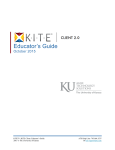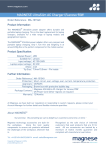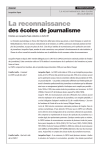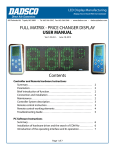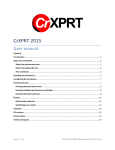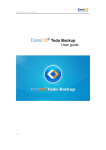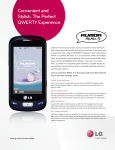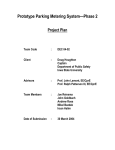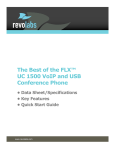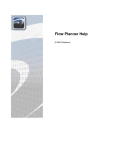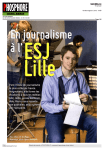Download BYOD Handbook (Milam)
Transcript
PURPOSE Providing students and staff with a 21st century digital learning environment is part of the Tupelo Public School District’s core values. Beginning with the 2013 ‐2014 school year, T program called “Bring Your Own Device” or BYOD. This will be launched at Milam Elementary allowing students and faculty to bring their own personal electronic devices (PEDs) to use at specified times during the school day for educational purposes only. We are limiting this privilege to Milam Elementary students and staff at this time. Your participation in this pilot program will help us determine the best way to carry out this plan in other schools. Use of PEDs to enhance learning in the classroom will be initiated by the classroom teacher. BYOD will be expanded to include more grade levels at the appropriate time as determined by the District. As TPSD moves to more cloud ‐based learning, various devices that have a web browser and Internet access. ACCEPTABLE DEVICES AND SOFTWARE No specific device is required; however, the device that we will be using in our pilot is the Lenovo Thinkpad X131e Chromebook. Below are the specs: ▪ 11.6’’ (1366x768) display ▪ 1.3 inches ‐ 3.9 lbs / 1.8 kg ▪ Up to 7.5 hours of battery 1 ▪ Intel® CeleronTM processor ▪ 100 GB Google Drive Cloud Storage2 with 16 GB Solid State Drive ▪ Dual band Wi ‐Fi 802.11 a/b/g/n and Ethernet ▪ HD Camera ▪ 2x USB 3.0, 1x USB 2.0 ▪ 1x HDMI Port, 1x VGA Port If students wish to purchase a device other than the Chromebook, please use the following specs to guide your purchase: For Laptops/Tablets: Recommended Specifications: Operating System Chrome OS 19 or newer Windows 7 or newer Mac IOS 10.7 or newer Browser Internet Explorer 9 Mozilla Firefox Google Chrome Apple Safari Plug ‐ins Adobe Flash 11 or higher Adobe Acrobat Reader or equivalent Memory 4 GB of RAM or greater Screen Size 10 inch screen size or larger Screen Resolution 1024 x 768 resolution or better Headphone/Earphone Headset or earphones Connectivity Dual band Wi Battery Life 8 hours or greater Input Device Keyboard Mouse/Touchpad ‐Fi 802.11n and Etherne WIRELESS AND FILTERING INFORMATION Access to the District's wireless network for PEDs will be made available to students, teachers and administrators primarily for instructional and administrative purposes. However, limited personal use of the system may be permitted if the use (1) imposes no tangible cost to the district (2) does not unduly burden the Districts network; and (3) has no adverse effect on an employee’s job performance or on a student’s academic performance (see Board Policy IJBA). TPSD provides filtered Internet access for all District locations. BYOD users are required to connect only to the filtered TPSD wireless provided for their school location per the instructions available through your school. By logging into the TPSD wireless network provided for BYOD, users are accepting the terms of the Technology Resources: Responsible Access and Use Policy (see Board Policy IFBGA). Your homeroom teacher will provide instructions on how to connect your PED to the District wireless network. RESPONSIBILTY FOR PERSONALLY ‐OWNED DEVICES • PEDs brought to school are the sole responsibility of the individual, including set charging. ‐up, maintenance • TPSD staff will not store, diagnose, or repair any PED. Students and staff who cannot access the TPSD wireless network or who may have technical issues with their PED must work with their user’s manual outside the classroom to take care of any issue. Since these are not TPSD devices, no District resources will be allocated to troubleshoot issues. • The school assumes no responsibility for PEDs if they are lost, lent, damaged, or stolen and only limited time or resources will be spent trying to locate lost items. Families should record the serial number and model information at home. • Students are responsible for knowing how to use their PEDs without reliance on teachers or other school staff. • PEDs may be subject to investigation in accordance with TPSD Board policy JCDA School Searches. All content on PEDs is subject to examination by an administrator if deemed necessary. • Students are to keep their PEDs secure at all times and students are not to lend their PEDs to others. As with all personal possessions students must not leave PEDs unattended. NON ‐BYOD PARTICIPANTS If you determine that you will not participate in the BYOD program, provisions will be made available to you. Students without access to PEDs will be provided an alternative way of completing assignments including accessing a school owned device, sharing with partners or groups or completing assignments in a different format. Non ‐participation will not be an instructional barrier. REQUIREMENTS FOR PARTICIPATION IN BYOD PROGRAM • Anyone who accesses the TPSD electronic information resources (EIR) must acknowledge and accept the terms of the Technology Resources: Responsible Access and Use Policy (see Board Policy IFBGA) by signing and submitting the Responsible Access and Use Agreement. For students under the age of eighteen (18), parents/guardians must agree to and sign this Agreement. • TPSD teaches and requires positive digital citizenship. • When accessing the EIR students are required to use the filtered TPSD Wi ‐Fi network at all of 3G/4G or Internet cellular network cards is prohibited on campus during school hours. Using you own wireless provider while on campus is a violation of the TPSD Policy IJBA: Personal Electronic Devices and will result appropriate disciplinary action, using the discipline ladder on page 4. • Students may not download movies, music, videos, etc., unless you are specifically instructed to do so by your teacher as part of your classroom assignment. • Students must follow District/school rules and all individual classroom procedures regarding the use of PEDs. • Students are responsible for assuring their PED does not contain any malware before connecting to District EIR. If malware is detected on your PED, you will not be allowed to bring it back until you have removed the malware from your PED. • Students are not to share password(s) or obtain anyone else’s password(s) by any means. This is strictly prohibited. • All PEDs and power cords must be clearly labeled with student’s name. • PEDs must be brought to school fully charged and in good working order. • Headphones may only be used in the classroom with permission from the teacher. • Students must turn off PEDs while working in class and use only when approved by the teacher and only for the activity designated by the teacher. • All content, transmission of data, inappropriate communication, unethical or illegal behavior, etc. on PEDs must adhere to the terms of the Technology Resources: Responsible Access and Use Policy (see Board Policy IFBGA) while the student/staff is on TPSD property or participating in a school event. • Any audio recording, video recording, photography or texting may be done only with teacher permission. It is recommended that all PEDs have a password or passcode. BYOD PROGRAM CONSEQUENCES The District believes that students will make the best choices and take advantage of the opportunity to participate in technology ‐enhanced learn BYOD program requirements and digital citizenship. Students will be accountable for using their PEDs appropriately. Repeated misuse will result in removal of the privilege. Administrators will use the discipline ladder below but may enter at any step depending on the offense. Access to the District’s electronic communications system is a privilege, not a right. Noncompliance with District policies may result in suspension or termination of privileges and/or other disciplinary action consistent with District policies. Below are the consequences for violations: First Violation: • PED is turned in to school administrator and returned to the parent. • Use of PED may be suspended for 3 days. Second Violation: • PED is turned in to school administrator and returned to the parent. • PED privileges may be suspended for a month. Third Violation: • PED is turned in to administrator and returned to the parent. • PED privileges may be suspended for a semester. Fourth Violation: • PED is turned in to administrator and returned to the parent. • PED privileges may be suspended for the year. In case of serious offenses such as theft or sharing inappropriate materials, students may be subjected to suspension from school for up to 10 days or placement at the alternative school. FREQUENTLY ASKED QUESTIONS Can students bring cell phones (including smart phones) or tablet to school? Yes, however they will not be able to access Classworks (a software program designed to meet students’ individual needs in Reading and Math) with a device that is not flash ‐compatible. Cell phones research, but they will have difficulty completing project ‐based assignments In order for your child to work at the same pace as other students, devices should be able to open up multiple windows, be Adobe Flash ‐compatible and have a keyboard. Will students be required to bring his/her own device? No, this is a voluntary program and simply an option now available. Students will still have access to the school’s technology resources during school hours. How will personal devices be charged and maintained? Students will be responsible for bringing their personal devices fully charged to school each day and for keeping up with their device throughout the day. Troubleshooting, maintenance and repairs on these personal devices will be the responsibility of the student. TPSD staff will not be able to store, diagnose, or repair any personal device. Students who are unable to access the TPSD BYOD wireless network or who may have technical issues with their personal device will want to refer to their user’s manual to take care of any issue. Since these are not TPSD devices no district resources will be allocated to troubleshoot issues. Will a laptop still be available for a student if he/she doesn’t bring his/her own? Yes, the district will have MacBooks and ChromeBooks available for use during the school day in those classes where technology is required. These will remain in classrooms and students will no longer be able to take them home. There is no fee for usage of this laptop. How will homework be submitted? Regardless of whether a student brings his/her own device or uses a district device, all coursework will be submitted and stored through the internet platform, the Cloud, or through our learning management system, Haiku. All students will log in and access the Internet through our secured network as well. Students will be given instructions once we begin school. What network access will students have with their own devices? While on Milam’s campus, students will have access to filtered Internet access only. Students will not have access to school ‐purchased software network folders and resources. Students will log in to TPSD’s network with a school ‐issued username At home, students will be able to access saved work in the Cloud and through Haiku. Can a student use software, applications or programs of their own? If a student has them on his/her personal computer and they do not violate TPSD’s Responsible Access and Use Policy or guidelines, those applications can be used. This policy can be found under “Board Policies” at www.tupeloschools.com. What if a PED is stolen or lost while at school? Students are responsible for their own devices. Families are encouraged to record the serial number and model information. Will students be able to print from their own PED at school? Students will not have the capability to print from their devices in school but will be able to submit work through Haiku or GoogleDrive and the teacher will print if needed. Are students required to add additional software (virus protection, filter, tracking device, etc.) to their own PEDs? Yes, they must have antivirus software on any Windows device to bring it on our campus. Will families need to have Internet access at home? No. It would be helpful to have some form of Internet access (wired or wireless) in order for a child to make full use of school resources from home but it is not required in order for a child to use a personal computing device at school. If you don’t have Internet access at home, students will be asked to complete homework on hard copy. How will a student’s education differ if the family does not provide an Internet ‐connected device to Many lessons are collaborative allowing students to work together, sharing information accessed through personal devices. When the work is individual, students may use school ‐owned devices m you will not participate in the BYOD program, provisions will be made in the building for those students. Students without access to personal devices will be provided an alternate way of completing assignments including accessing a school owned device, sharing with partners or groups or completing assignments in a traditional format. There is no negative effect in not participating in BYOD.












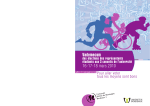

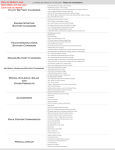


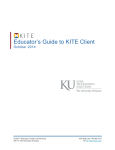
![[U2.07.02] Notice d`utilisation de la sous-structuration](http://vs1.manualzilla.com/store/data/006366088_1-a41bd16bb9ec95233d9e4a5fe376e179-150x150.png)
![[U2.07.02] Notice d`utilisation de la sous-structuration](http://vs1.manualzilla.com/store/data/006382462_1-38a069c02ce610d879e6c9ba6e171712-150x150.png)
